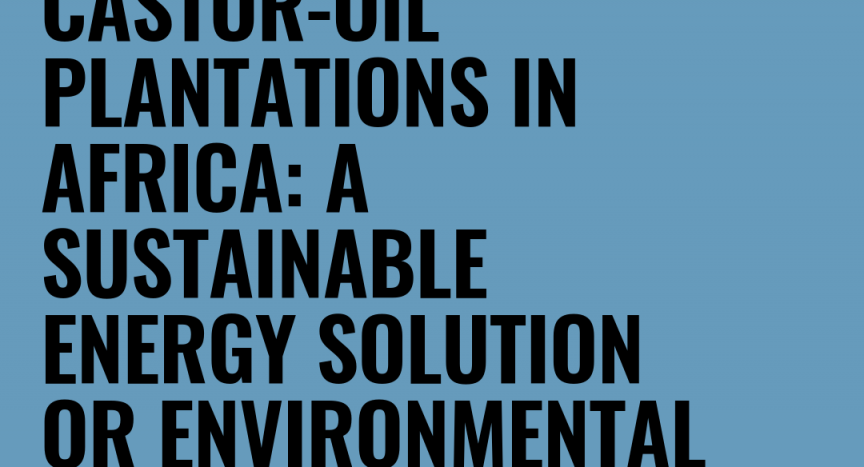Exploring the Implications of Castor-Oil Plantations in Africa
Africa is witnessing a surge in the cultivation of castor-oil plantations as a promising solution to reduce carbon emissions and promote greener alternatives to fossil fuels. Major oil companies such as Eni are spearheading this trend, establishing plantations in countries like Kenya, Angola, Mozambique and Côte d’Ivoire. While castor oil is lauded for its low-maintenance and drought-resistant qualities, the presence of ricin – a toxic substance harmful to wildlife, livestock, and humans – poses a significant environmental concern that has been largely overlooked. The push for biofuel extraction from castor beans draws parallels to past failed attempts, such as jatropha biodiesel plants, raising questions about the long-term viability and sustainability of this approach.
Three things to know:
- The Mattei Plan and Green Energy Investment: Italian energy giant Eni is investing heavily in green energy initiatives in Africa, with a focus on castor-oil plantations to meet net-zero targets by 2050. The €5 billion “Mattei Plan,” championed by Italian Prime Minister Georgia Meloni, aims to position Italy as an energy hub connecting Europe and Africa through sustainable practices.
- Environmental Concerns and Risks: While castor oil is praised for its eco-friendly properties, the toxicity of ricin from castor-bean seeds raises alarms about its impact on local ecosystems and human health. Balancing the benefits of biofuel production with potential environmental risks becomes crucial in decision-making processes.
- Economic and Geopolitical Implications: The expansion of castor-oil plantations signifies a shift towards renewable energy sources in Africa, potentially impacting global energy markets and trade dynamics. The involvement of multinational corporations in such projects underscores the intersection of economic interests and environmental sustainability in the region.
Conclusion
The rise of castor-oil plantations in Africa reflects a growing momentum towards sustainable energy solutions, driven by both environmental imperatives and economic interests. While initiatives like the Mattei Plan demonstrate a commitment to green energy investments, the environmental risks associated with castor oil production highlight the importance of thorough risk assessment and mitigation strategies. As Africa navigates the complexities of balancing energy needs, environmental protection, and economic growth, policymakers and stakeholders must heed both the promises and pitfalls of biofuel production to ensure a sustainable and resilient energy future.






